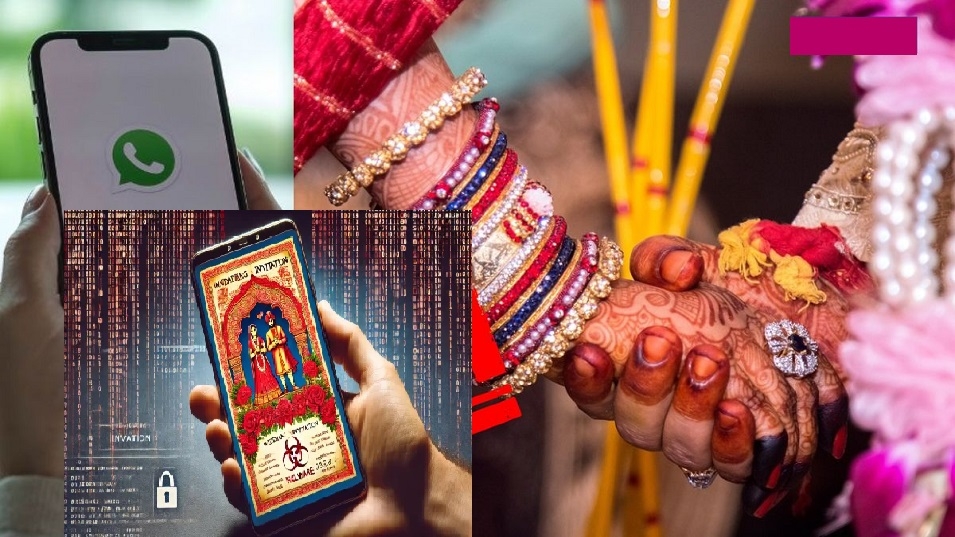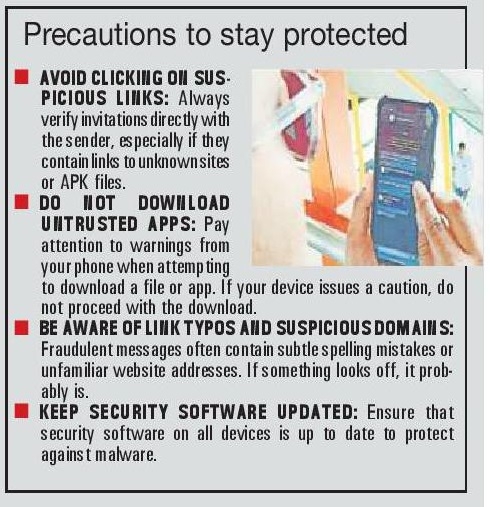Beware of fake wedding invitations spreading malware
| Date :26-Dec-2024 |

By Dheeraj Fartode :
The Maharashtra Cyber Police have issued an urgent warning to citizens about a new scam in which fraudsters are sending fake wedding invitations through social media platforms. The aim is to trick unsuspecting victims into downloading a malicious APK file, which contains malware capable of stealing personal information, compromising privacy, and potentially leading to financial losses.
Amid ongoing wedding season, several residents of Nagpur have reported receiving suspicious wedding invitations via WhatsApp, Instagram, and other messaging platforms. The invitations include links that, when clicked, redirect users to a webpage that automatically downloads a harmful APK file
onto their phones.

Once installed, the malware can hack into the user’s phone, robbing them of sensitive data leading to significant security breaches.
Deputy Commissioner of Police (DCP) Cyber, Lohit Matani, expalined the issue and stated that the scam is a new tactic employed by cyber criminals.
“This type of fraud is based on sending a wedding invitation link through messaging apps like WhatsApp. When the user clicks on the link, the device is redirected to a site that triggers an automatic download of malware in the form of an APK file.
The malware can then infect the phone which could lead to compromised personal information and potential financial harm,” explained DCP Matani.
DCP Matani urged citizens to be extremely cautious when receiving unsolicited invitations with download links.
He advised that users should always be alert about unknown messages which redirect to download link. He further recommended that whenever in doubt, the citizens should confirm the legitimacy of the invitation directly with the sender.
Maharashtra Cyber police officials also alerted citizens on the banking apps and stated that always download any banking apps from trusted sources like the Google Play Store or the Apple App Store.
“Before installing any banking app, check the developer’s name and read user reviews. Never click on links received via unknown emails, SMS, or social media,” suggested DCP Matani.
